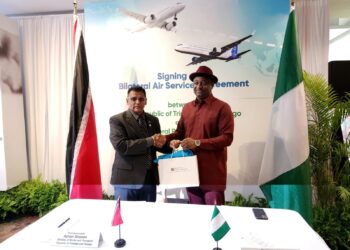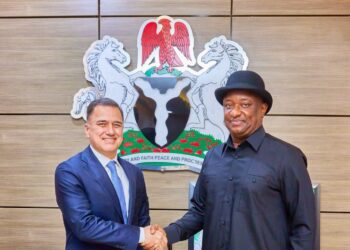Despite the allegation of unfavourable Bilateral Air Service Agreement (BASA) arrangements against the Nigerian carriers by some stakeholders in the country’s aviation industry, the Managing Director of Med-View Airline said there is no gang up against the indigenous operators.
Speaking in an exclusive interview with Nairametrics in Lagos, Bankole insisted that no airline or government stopped Nigerian airlines from BASA reciprocity.
Rather, he said the failure of the country’s airlines partner as a united front was working against their growth.
Bankole said that with the current cooperation among the foreign carriers through their governments, Nigerian airlines can’t compete with them.
He said:
- “We are making a grave mistake. I will tell you honestly that all those who run into airlines telling people that BASA is one-sided, it is incorrect. The reciprocity that we are talking about is nothing.
- “I visited London, Virgin came up and everybody wanted to fly to Nigeria because this is the market. How many of our people want to go there? I repeat, I don’t know, and I say it openly; we went there.”
As of October 2021, Nigeria’s BASA arrangements with other countries had climbed to 95.
Reports claimed that only about 30 of the arrangements are active, while a very few Nigerian carriers like Air Peace are currently taking part in the frequencies.
Despite the absence of Nigerian carriers on most foreign routes, which limits reciprocity, pressures are still mounted on the Federal Government especially by the State governors, legislators, and some professionals in the sector to approve more foreign airlines to fly directly into various states and airports in the country, irrespective of its effect on the nation’s carriers and employment opportunities for qualified personnel.
At present, Nigeria has five international airports: the Murtala Muhammed International Airport (MMIA), Lagos, Nnamdi Azikiwe International Airport (NAIA), Abuja, Aminu Kano International Airport (AKIA), Kano, Akanu Ibiam International Airport (AIIA), Enugu and Port Harcourt International Airport (PHIA).
Most of the foreign airlines operate in multiple destinations in Nigeria with plans to further increase their frequencies and presence in the country.
No fewer than 11 foreign carriers, including Qatar Airways, Emirates, Ethiopian Airlines, and British Airways are operating additional 70 frequencies to Nigeria weekly with operations to several cities across the country.
Also, Virgin Atlantic Airways, Africa World Airlines; Turkish Airlines, and Asky Airlines, among others are the carriers with multiple operations into Nigeria.
For instance, the Qatari Government had in February 2016 signed a new BASA arrangement with the Federal Government, which would enable its carrier, Qatar Airways from its base in Doha, to increase its weekly frequencies to major cities in Nigeria to five destinations.
Qatar Airways presently operate in Lagos, Abuja, Kano, Port Harcourt, and Enugu. It operates seven weekly frequencies at the Murtala Muhammed International Airport (MMIA), Lagos.
Besides, Bankole stated that the environment the foreign carriers operate in is quite different from what is obtained in Nigeria amidst so many challenges the nation’s airlines are faced with.
He advised the indigenous operators to cooperate to remain in business.
- “Nigerian airlines should come together. There is no sentiment about it. You have 17 aircraft, you have five aircraft, go and put heads together and discuss with a good mind, open your heart, let people know who is speaking so that Nigeria can have a drive of a new way forward,” he said.
He also regretted the controversies that trailed the national carrier project, Nigeria Air, saying it lacked transparency.
He reiterated that the airlines under the auspices of the Airline Operators of Nigeria (AON) had told the government there was no need for the re-establishment of a new national carrier after the collapse of the former, but the government insisted on the project, which later failed.
He asserted that instead of the Federal Government championing another national airline, the government ought to create an enabling environment for the operators to thrive.
























